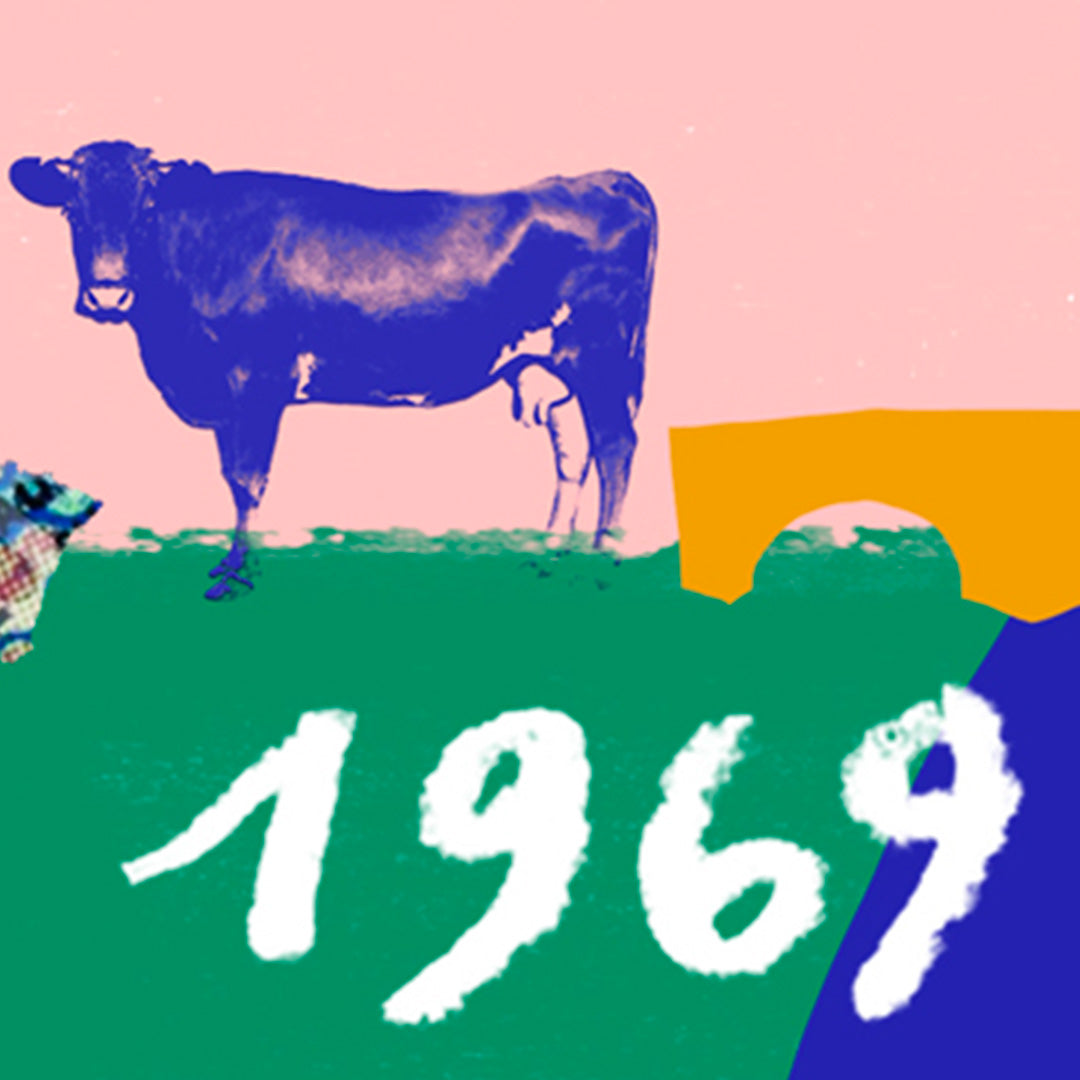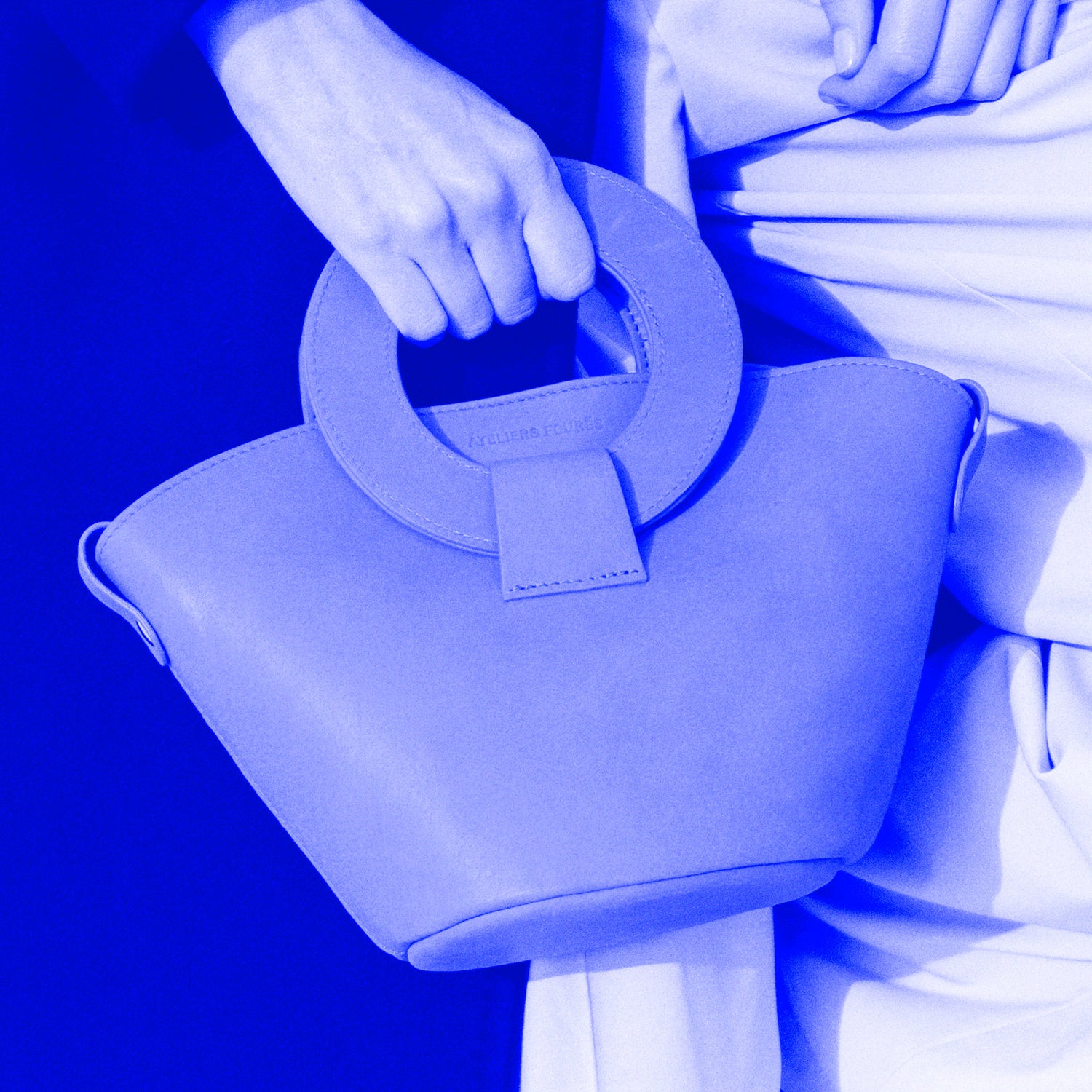
Our leather, an eco-responsible choice!
If you had to remember only 4 things about our leather:
- All our leathers are made from the recycling of waste from the agricultural food industry . No cows were raised to make it!
- It is produced in France , using short supply chains , in compliance with some of the strictest environmental and social standards in the world.
- It is a material that is extremely resistant , which will acquire a patina and become more beautiful over time . This allows us to make bags and wallets that will last a long time. It is the complete opposite of fast fashion.
- No other material currently meets these quality and durability criteria.

Why do we favor leather?
Our main reason is quality. Did you know that cowhide leather like the one we use is the guarantee of a product that is extremely resistant to time?
Leather is a very strong natural material, which has unrivaled resistance to abrasion and time. A leather that is not pigmented on the surface, like those we use, will even become more beautiful as it ages. It will acquire a patina, darken and shine slightly.
Our second reason is the revaluation of waste into a noble and sustainable product. Indeed, all our leathers come from skin residues from the food industry. No animals have been raised to make the leathers worked in our workshops.
As long as humans consume meat, milk or wool, it will be necessary to revalue the skins from these farms. Without this natural and ancestral upcycling, hundreds of tons of skins would have to be treated through a costly and polluting process of rendering and burial or incineration. In order to avoid this waste, the skins are recovered and worked to create a high-quality product: leather.
And then, we also work with leather because it is:
- Almost waterproof: even untreated, leather protects your personal belongings from the elements without affecting its quality.
- With an exceptional touch : we do not add any synthetic surface pigments, in order to offer you a soft and supple leather. An unrivaled sensoriality, roundness and touch!
- Repairable : our expertise allows us to offer you the repair of your old products rather than the purchase of new ones. Because this is also responsible consumption, saying no to overconsumption and disposable products.
What about plant-based alternatives and vegan leather?
You have to be careful with the terms “vegan leather” or “vegetable leather” which are misnomers. Leather that is not animal leather does not exist!
However, we fully understand and respect the choice of vegans who do not wish to consume any product from livestock farming. In order not to have to choose between veganism and Made in France, we are working on alternatives other than leather for future collections. We are actively looking for other materials that are satisfactory in terms of durability, resistance, price, quality of touch and flexibility.
Our approach has always been guided by the eco-responsibility of our products and the impact of our brand on the planet. To avoid polluting, we must consume less. And to consume less, we must invest in sustainable products.
Unfortunately, vegan or plant-based leather alternatives are not aligned with these core values. They are not synonymous with quality or eco-responsibility.
- Faux leather is a product composed mainly of plastic materials derived from petroleum. It is a layer of polyurethane generally applied to a textile base, itself very often made of polyester.
- This is also the case for so-called "vegetable or organic" materials, based on apples, grapes, cacti, mushrooms, etc. For these products, 15 to 30% organic materials are added to the polyurethane base. This layer is then applied to a polyester textile base. The overall organic part of the product is very limited compared to the plastic part.
- The durability of textile or faux leather is very low. Its resistance to time and friction will be significantly less than that of leather. It is a product that will quickly deteriorate and age badly, unlike a leather product that will develop a patina and last much longer. As soon as the thin layer of polyurethane is gone on the friction areas, you will see the textile material underneath appear. The same goes for a canvas bag that will wear out and get holes quickly.
- Recycling fake leather is expensive and complicated: most of the time, these are items that are difficult to repair or repurpose, and will have to be burned or buried.
Alternative materials are generally chosen by fashion players for two reasons:
- These are vegan materials that meet the expectations of those who have adopted this lifestyle.
- Faux leathers and textiles are about 10 times cheaper than real leather. This is why some major brands manage to manufacture a very functional synthetic canvas backpack for €1.99 in Asia, where the average salary is less than €100 per month. This is what we are fighting against.
So, real leather or vegetable alternative?
A genuine leather bag lasts much longer than a faux leather or “apple leather” bag. It will even become more beautiful over time! No alternative to leather offers such durability.
We are constantly monitoring new eco-responsible leathers and vegan materials in order to one day find the one that will allow us to offer you acceptable and affordable quality, without compromising our requirements and our values.
In this expectation and in order to limit our ecological impact a little more, we work in a short circuit. Our leather is produced in a tannery labeled EPV in Occitanie, in a historic leather region. Our tannery works for the biggest luxury brands. This is your guarantee of high-quality leather and compliance with the most demanding social and environmental standards in the world. The standards for water recovery and filtration, use of dyes, leather nourishment and other products, and work rules (time, hardship, salary, age, etc.) are scrupulously respected.








